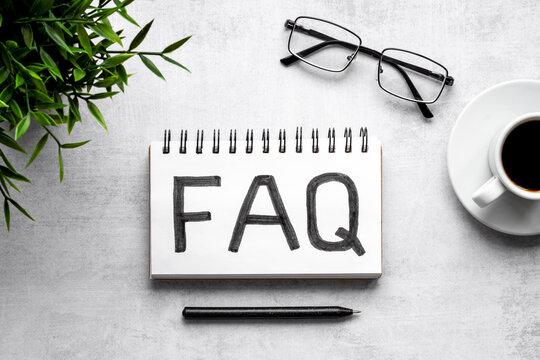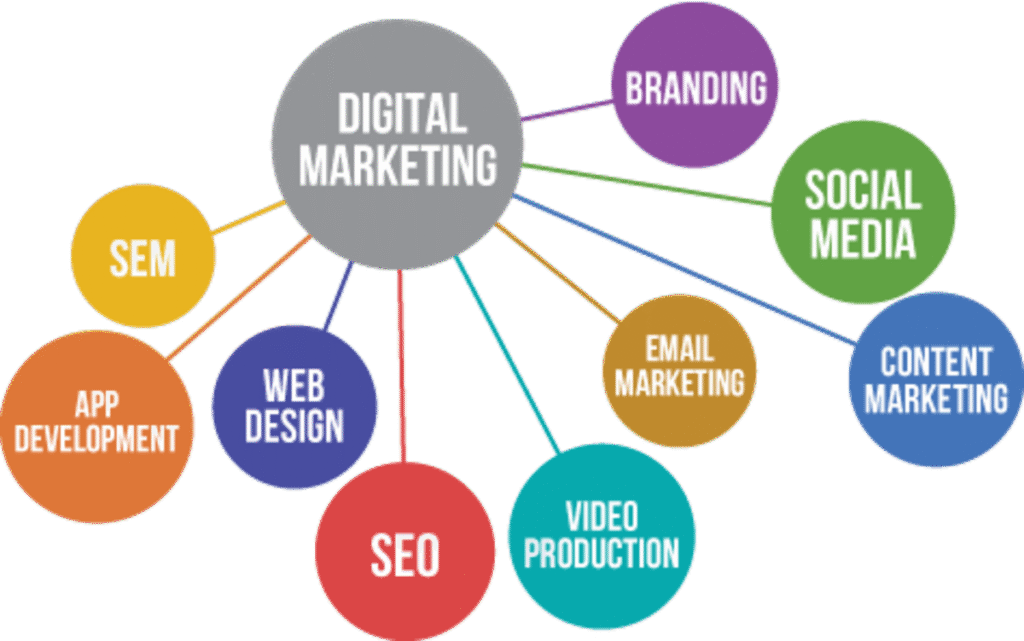Frequently Asked Questions (FAQs)
Welcome to our Digital Marketing FAQs! Here you’ll find simple, clear answers to the most common questions about digital marketing—what it is, how it works, and how it can help your business grow online.

- SEO Services
- Content Marketing
1. Even if my website already ranks well, should I still invest in SEO?
Yes, search engine algorithms evolve continuously, and competitors work diligently to outpace you. Ongoing SEO, fresh content creation, and reputation-building are essential to retain and grow your ranking and authority.
2. How does SEO help grow my business?
SEO enhances visibility in search results, attracts higher-quality traffic, improves user experience, builds brand credibility, keeps you ahead of competitors, and ultimately drives conversions and sales over both short and long term.
3. What is AI-powered SEO and how does it benefit businesses?
AI SEO leverages machine learning and automation to optimize keywords, content, and technical SEO, and even anticipate search trends. When coupled with human strategy, it accelerates results and improves adaptability to search algorithm changes.
4. How can I measure the success of my SEO efforts?
Monitor key metrics such as keyword rankings, organic traffic volume, page load performance, user behavior, and conversion rates using tools like Google Analytics and Google Search Console. Improvements in these areas are strong indicators of SEO effectiveness.
5. Is it necessary to hire an SEO specialist for a new website?
Basic SEO—like setting up site structure, domains, and starting content—can be managed with beginner tools. However, competitive industries or complex goals benefit far more from a professional who can set a faster, more scalable trajectory.
6. What are the first steps for optimizing a brand-new website?
Begin with comprehensive keyword research. Choose an SEO-friendly domain, create a logical structure, craft core content pages, and configure technical fundamentals like SSL, XML sitemaps, and analytics before launching.
7. How can large websites automate SEO and content tasks effectively?
Utilize AI tools (ChatGPT, Jasper) to generate content outlines, meta descriptions, FAQs, and improve readability. This boosts efficiency while allowing your team to focus on strategy and creative direction.
8. Do you offer SEO plans customized for individual business needs?
Absolutely. SEO strategies are crafted to align with the unique objectives, industry, and audience of each client—whether it’s a growing startup or a complex enterprise.
9. Is SEO automation suitable for every type of site?
Not always. Smaller or niche sites may benefit more from manual optimization—whereas larger websites with extensive content can leverage automation to manage scale more efficiently.
10. How can automation help scale SEO initiatives?
Automation optimizes repetitive tasks like tracking keyword rankings and performing audits. It frees up time and resources for strategic activities—like content creation, link building, and UX improvements.
11. Why is keyword research fundamental to SEO strategy?
Keywords reveal what your target audience is searching for. Knowing the right terms enables precise content optimization to capture intent and boost visibility.
12. What are the pillars of an effective SEO strategy?
A strong SEO strategy includes keyword research, content optimization, technical SEO work, link-building efforts, and improvements in user experience.
13. How often should I revisit my SEO strategy?
SEO requires regular updates—especially in response to algorithm updates, shifting industry trends, or outdated content. Ongoing refinement keeps your strategy effective.
14. What are the three core SEO categories?
SEO is typically organized into:
On-page SEO (content and structure),
Off-page SEO (backlinks and external signals), and
Technical SEO (site speed, crawlability, mobile optimization).
15. What are the ‘3 Cs’ of SEO?
Content – high-quality, relevant information
Code – optimized technical structure
Credibility – trust gained through UX and backlinks
16. Is it possible to do SEO on my own?
Yes. With dedicated learning and effort, individuals can improve site visibility via keyword research, content improvement, and technical fixes—even without hiring professionals.
1. What exactly is content marketing, and why should global businesses invest in it?
Content marketing is about creating and sharing valuable, audience-focused content—like blog posts, videos, infographics, and case studies—to inform, engage, and build trust with your target customers. For global brands, it supports lead generation, enhances brand awareness across diverse markets, and establishes long-term credibility.
2. How do I get started with content marketing on a new website?
Begin by understanding your audience: what challenges they face, what questions they’re asking. Then craft content that directly addresses those needs—such as how-to guides, blog articles, or FAQ pages. Distribute the content via your site, social media, and email to start gaining engagement.
3. What types of content work best in different markets?
You can use a mix of formats—short-form (e.g., social videos, quick infographics) works great for fast engagement, while long-form content (e.g., comprehensive guides, case studies) builds authority. Tailor formats and tone based on the local culture, platform preferences, and content consumption habits.
4. How can content marketing benefit my business in measurable ways?
Content marketing can improve search visibility, attract relevant organic traffic, and drive leads through educational or helpful content. It also boosts audience retention and can nurture customers through the sales funnel with consistent value.
5. Is a content strategy necessary?
Absolutely. A strategic framework ensures your content efforts are purposeful—not just random publishing. Define your goals (brand awareness, lead gen, thought leadership), understand your audience, choose themes and channels, set a publishing cadence, and track performance.
6. How frequently should I publish content?
There’s no one-size-fits-all. Choose a regular schedule you can sustain—whether it’s weekly blog posts, bi-weekly newsletters, or monthly reports. Consistency matters more than frequency. Align cadence with audience expectations and your capacity to maintain quality.
7. What metrics should I track to evaluate content marketing success?
Key indicators include organic traffic, time spent on page, bounce rate, social shares, and conversion actions (like downloads or form submissions). Tracking these helps measure engagement and content effectiveness.
8. How can I scale content marketing efficiently?
Start by building a content calendar. Leverage templates for formats like blog posts or case studies. Repurpose content across platforms—for example, turn a blog article into a video summary or a social media carousel. This saves time and helps maintain consistency across international audiences.
9. How does content marketing integrate with SEO and overall digital strategy?
Quality content fuels SEO by targeting relevant keywords and providing meaningful answers to user queries. It supports link building and improves site visibility. When combined with technical SEO and on-site optimization, content marketing becomes a high-impact growth driver.
10. How long does it take to see results from content marketing?
Content marketing is a long-term strategy. While some quick wins like social engagement or early traffic may appear within weeks, sustainable results such as higher rankings, brand authority, and consistent lead generation usually take 4–6 months of steady effort.
11. What’s the difference between content marketing and traditional advertising?
Traditional advertising is interruption-based, focused on direct promotion (like TV ads or banners). Content marketing, on the other hand, attracts customers by providing helpful, engaging, and informative material that builds trust and nurtures long-term relationships.
12. Should content always be created in-house, or can it be outsourced?
It depends on your resources. In-house teams understand the brand voice deeply, while outsourcing to specialists or agencies ensures professional execution, scalability, and expertise in SEO, design, and storytelling. Many businesses use a hybrid approach for balance.
13. How does storytelling improve content marketing performance?
Storytelling humanizes your brand. Instead of pushing facts alone, it connects emotionally with your audience, making the content more memorable, relatable, and shareable—ultimately driving stronger engagement and brand loyalty.
14. Is video content essential for content marketing today?
Yes, video has become one of the most powerful content formats. It increases audience engagement, communicates messages quickly, and performs well across platforms like YouTube, LinkedIn, and Instagram. For international businesses, localized video content can also connect better with diverse audiences.


